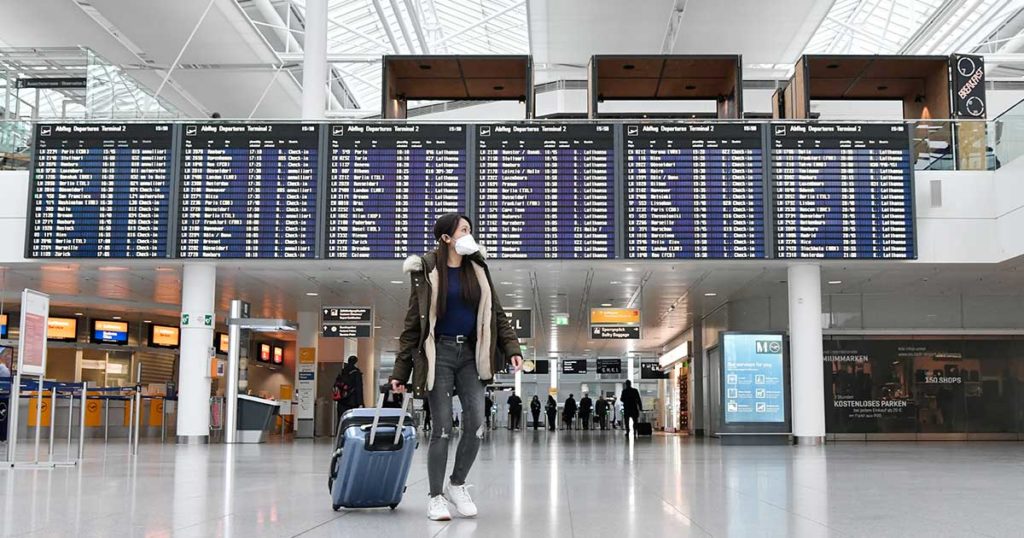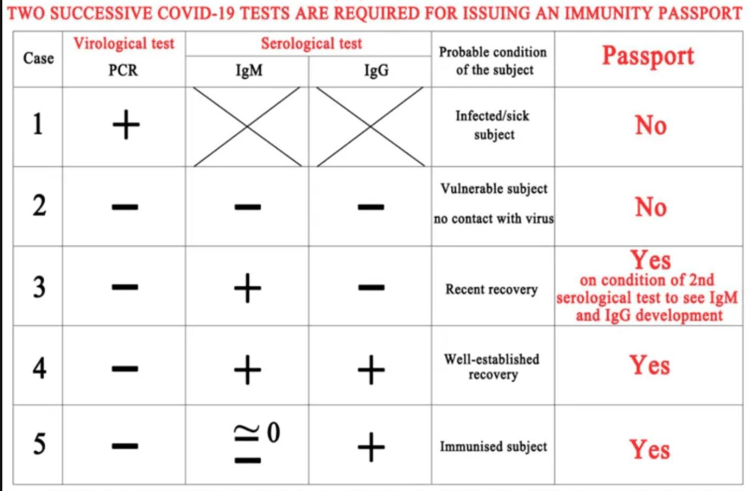The need to limit the economic damage caused by COVID-19 while slowing the spread of the virus itself presents itself as an insoluble dilemma.
Allowing life to return to normal too quickly risks costing lives, and overwhelming health services which still have to deal with every other kind of injury and sickness. But quarantines and restrictions on freedom of movement to contain the disease risk destroying industries and livelihoods, notably in international travel.
Airlines are at the sharp end of a dilemma that confronts the whole global economy. Four trans-Atlantic carriers, United, American, British Airways and Lufthansa, in July wrote to governments worldwide to ask them to find a way to get passenger services moving again.
According to the International Air Transport Association (IATA), aviation in a normal year contributes $2.7 trillion to global GDP. More than a third of global trade by value moves by air, and each of the 25 million employees in the airline industry helps to support up to 24 other jobs in the broader economy. Above all, a recovery in international tourism depends on the re-establishment of air connections.
Social distancing is clearly incompatible with commercially viable flights. The IATA does not expect a full recovery in air travel demand until 2023. Even that forecast seems to assume that a vaccination is found, of which there is no guarantee.
The industry, and the world economy, can’t afford to wait that long. It is possible, necessary and urgent for governments all over the world to put in place concrete, standardized measures to avoid airline bankruptcies and save millions of tourism-related jobs. A Temporarily COVID Free (TECOF) Certificate can contribute to doing this.
The initial proposal
While under confinement in Paris, I was among the first to suggest the creation of an international COVID immunity passport to revive tourism, international trade and transport and the world economy.
For the establishment of such a passport I suggest a testing protocol combining a virological test using polymerase chain reaction or PCR techniques, already widely used to detect coronavirus by taking a sample from the nose or throat, with a serological test to detect antibodies. These usually appear in the blood in the course or following a coronavirus infection and eventually confer immunity to the disease (see table below).
The first stage is a virological PCR test on the passport candidate. There are two possibilities:
– The test is positive (case 1) showing that the person is infected. The passport is refused without the need for a serological test; or
– The test is negative (cases 2 to 5); Examination of the person continues with a recommendation for a serological test to detect antibodies. There are two kinds of these: IgMs which show an infection which is recent or continuing, and IgGs which show an old infection and present immunity to the illness in question.
There are several possible cases for the second stage:
– Case 2: The IgM and IgG antibodies are both negative: the person has not been in contact with coronavirus, which remains unknown to their immune system. The person remains vulnerable, and can at any time become infected and contagious. The Immunity Passport is therefore refused.
– Case 3: The IgM antibody is positive but the IgG antibody is negative: the person has recently been infected, and may still be, but their immune system has reacted more or less successfully, leading to the start of a recovery which remains to be confirmed. The Immunity Passport can only be granted after a second serological test later on to measure the development of the presence and quantity of IgM and IgG antibodies.
– Case 4: The two antibodies IgM and IgG are positive, showing an established recovery. The Immunity Passport can be granted.
– Case 5: The IgM antibody can disappear or only remain in very small quantities after several weeks or months, but the IgG antibody remains present possibly in higher quantities, which means that the subject has acquired immunity. The immunity passport can be granted.
Objections
The main objections to the idea of immunity passports concern the reliability of the tests, the uncertainty surrounding the length of time for which acquired immunity lasts, and the possibility that such passports will have a divisive effect on society.
Many of these objections will diminish over time. The reliability of tests for COVID-19 antibodies was the first hurdle. This has been overcome with serological tests, for example from Abbott, which have sensitivity and specificity above 99%.
The antibodies can be detected starting 14 days after the infection or the onset of symptoms. In any case, with the prerequisite of a virological test in the two-step protocol, the risk of wrongly delivering a COVID immunity passport to a person that carries the virus but is falsely considered immune because of a faulty serological test, can be eliminated.
The novelty of COVID-19 means that it is not possible to be sure for how long immunity lasts once a person has had contact with the virus. Regular, repeated testing for antibodies is the only way to find out. But an established immunity, even if it only lasts for three months, would be enough to make viable many international trips which are currently impossible due to quarantine requirements or outright prohibitions.
The solution
One way forward would be to issue certificates that a person is "Temporarily COVID Free", or TECOF. A TECOF 1 certificate would be solely based on a PCR test and valid for 15 days.
This could be followed by a TECOF 2, issued on the basis of two successive tests, a virological PCR test followed by a serological test (as shown in the table above), which would be valid for three months.
These certificates would have to be presented before boarding a flight. They would both ensure a guaranteed COVID-free flight and avoid any need for subsequent quarantine in the countries of destination.
The IATA does not currently support immunity passports, mainly because in many countries insufficient numbers of people have yet come into contact with the virus. Not enough people will yet qualify for such passports to allow air transport to restart on a large scale.
Again, this objection will diminish over time as more people come into contact with and successfully overcome the illness. Simply waiting for a vaccination which may never arrive may prove to be like Waiting for Godot, the title of Samuel Beckett’s play written in 1948.
Even if since the start of the pandemic we have only had six or seven months to verify acquired immunity, there is no clear proof that someone who has been ill with COVID-19 can recover and then contract the illness again. If natural immunity was not lasting for longer than a year, then there is little hope that any vaccination would be really effective as the principle of a vaccination is to create immunity, generally through exposure to a weakened or modified form of the virus.
Critics have also argued that immunity passports would divide society into two groups, those who are free to travel and those who are not. But the US is already very visibly split between those who accept the need to take precautions such as staying at home and wearing masks, and those who regard such moves as impinging on their freedom.
Immunity passports can eventually contribute to ending that division. Those who need freedom of movement should be given it, if they can prove they are immune. For a time at least, they would present no danger to anyone else. Far from dividing society, immunity passports could actually contribute to healing it.
Given the absence of coordinated and coherent national measures, the TECOF certificate would represent progress. Once standardized, it would allow governments to coordinate their efforts to restart air transport and international tourism.
Sam Rainsy, former finance minister of Cambodia, lives in exile in Paris.



